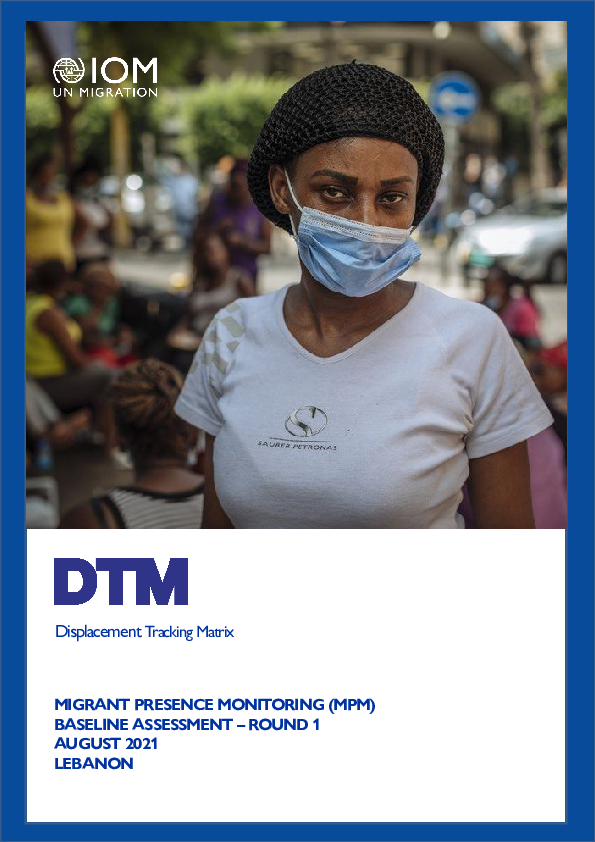-
Countries
-
Data and Analysis
-
Special Focus
-
Crisis Responses
Lebanon - Baseline Assessment Round 1

Contacto
iombeirut@iom.int
Idioma
English
Ubicación
Lebanon
Fecha de instantánea
Oct 01 2020
Jun 30 2021
Actividad
- Flow Monitoring
- Migrants presence
- Mobility Tracking
- Baseline Assessment
This report presents the findings from the International Organization for Migration’s (IOM) Migrant Presence Monitoring (MPM) Round 1 data collection exercise conducted across Lebanon. The exercise took place between October 2020 and June 2021 and covered nearly all cadastres in Lebanon. This report represents a first step to strengthen the evidence base on migrant numbers in Lebanon.
The MPM baseline assessment is designed to systematically assess, through a series of MPM Rounds, cadastres (Admin 3 areas) in Lebanon to quantify the presence of migrants per this administrative area to support operational assistance, coordination, and planning. The data collection is based on estimations received from Key Informants (KI) who are mostly composed of Mukhtars, local authorities of these areas, and Municipality officials. The MPM relies on KIs to provide reliable information for a specific and known area. For data collection, the administrative area of a cadastre was chosen as it is the smallest administrative unit with dedicated administrative officers, and the areas are small enough to ensure that information collected on the area are reliable. As a result of the situation and arrangements of migrant populations, repeated rounds will strengthen the data collected and resultant baseline.
The MPM baseline assessment follows the methodology of IOM’s global Displacement Tracking Matrix (DTM) Mobility Tracking component. Tailored to meet the specific operational context in Lebanon, the MPM baseline assessment gathers and analyzes data to disseminate critical multi-layered information on the presence and mobility of migrants as well as Lebanese nationals. This assessment aims to complement existing data collection exercises and it is implemented in coordination with key actors to maximize synergies, interoperability and avoid duplication.
In this exercise, data was collected on population size (number of migrants), nationality of migrants, and mobility trends (inflow and outflow) to and from the cadastre. Questions regarding the reasons for mobility and volume of flows were asked to migrants and to Lebanese nationals. KIs were also asked information related to the rapid deterioration of socio-economic conditions from October 2019, the Beirut Port explosion (from August 2020), COVID-19 impacts and other health reasons, among other drivers. More details on the methodology of the exercise can be found on page 04. The MPM data collection exercise is an ongoing process with the purpose of building on these estimates, and with a second round in the upcoming year for further fine-tuning as more concerted efforts take place with various partners.
